Five ways to lose weight
- Published
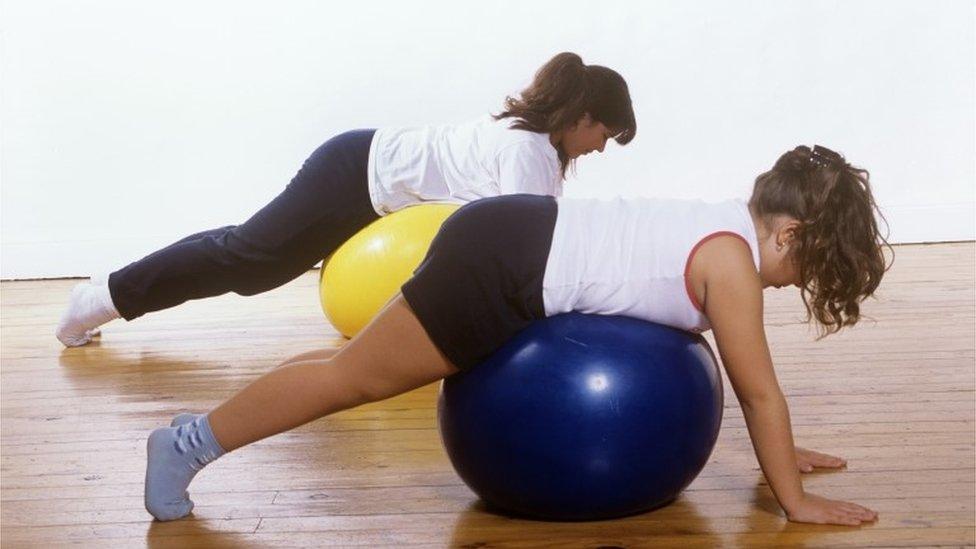
Women's health is at serious risk from obesity, according to England's chief medical officer Dame Sally Davies. She says tackling the UK's weight problem should be a national priority.
Latest figures show 51% of women aged 25-34 are overweight or obese, rising to 63% by the time women are between 45 and 54. Men are even more likely to weigh too much, with almost 80% per cent of men aged 45-54 classed as overweight or obese.
The health service, the food industry and supermarkets have all been blamed for not doing enough to tackle the size of the nation's waistbands. But what are some of the practical things people can do to help improve their own health and well-being?

Learn to cook
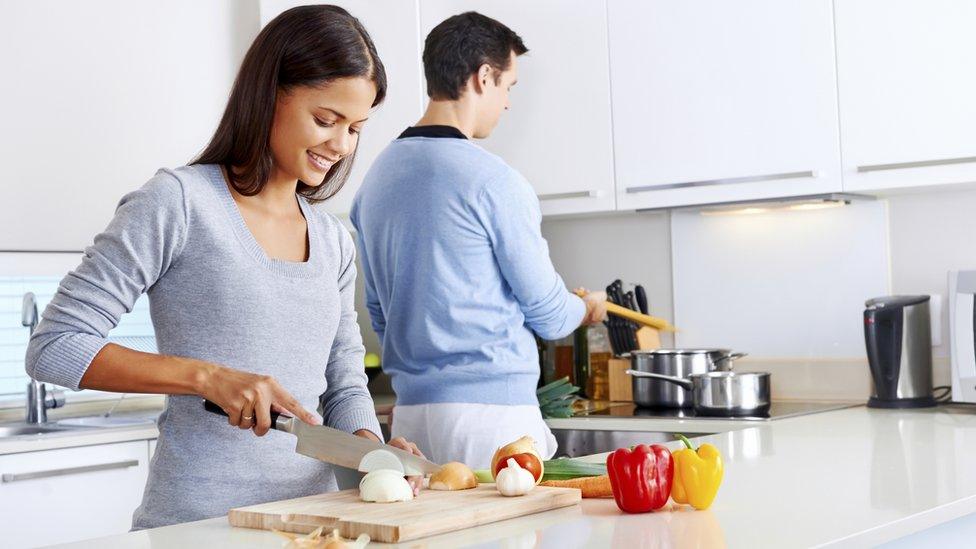
It sounds obvious, but what you put in your body is going to directly affect your weight. Cooking meals from scratch means you know exactly what ingredients have gone into your food.
Tam Fry, from the National Obesity Forum, says: "Learning how to cook fresh food is really the number one thing to consider when tackling obesity and improving weight loss. Of course that means you have to have access to a kitchen and a certain amount of time, which isn't possible for everyone, but if you can cook your own food you should try."
Swap unhealthy and high-energy food choices - such as fast food, processed ready meals and sugary drinks, including alcohol - for healthier choices. According to the British Dietetic Association, external, eating 400g of fruit and vegetables a day can also help lower the risk of high blood pressure and some cancers.
If you cannot cook, spend more time on your supermarket shop. Mr Fry says: "People don't read labels and they should become more aware of what is in the things they buy. At government level making the labels easier to read and understand is key, but just by looking at how many grams of sugar is in something is really important."

Use smaller plates
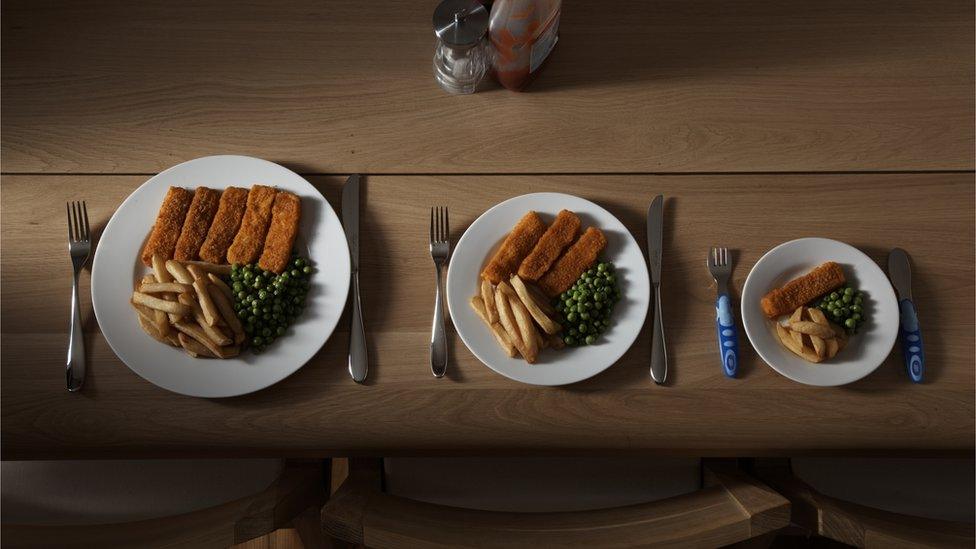
As food has become more fashionable so, too, has the size of our tableware. Chefs like to showcase their culinary creations on large dinner plates but research has suggested that people eat most of what they serve themselves, so any cues that lead them to over-serve also lead them to overeat.
An experimental study by Dr Brian Wansink, external, an academic at Cornell University, claimed reducing plate size from 12in to 10in typically results in 22% fewer calories being served, as the smaller plate makes a normal serving seem more filling.
However, the study found a lower limit for the effect - once plate size went below 9.5in, "people begin to realise they're tricking themselves and go back for seconds and thirds".
The study predicted that using a 10in plate for a year would lead to a weight loss of 18lbs for the average adult.

Track your activity

Weight gain and inactivity often go hand in hand and research has shown a lack of exercise could be killing twice as many people as obesity.
So, if you want to get slimmer it is time to get moving.
Experts say keeping a record of what you are doing can be a good way to monitor how much exercise you are really getting.
Swansea-based GP Dr Charlotte Jones says: "Doing exercise for just 20 minutes a day will affect your health and help with weight loss. That doesn't have to mean joining a gym or paying for classes. Just walking more makes a difference.
"But it's also about taking ownership of the situation. I track what I've been doing with an app on my phone. There are loads of free apps that can show you how many steps you've taken and it means you can compare day by day how much you've done."
If you cannot get more exercise, just standing up more could really help.
Standing for three hours extra a day could burn off 8lbs (3.6kg) of fat each year, according to research for the University of Chester. Dr John Buckley says: "People are sitting down at work, then sitting in the car and then sitting down in front of the television. Your metabolic rate crashes to an absolute minimum. It isn't natural. Humans are designed to stand up and keep moving."

Get support
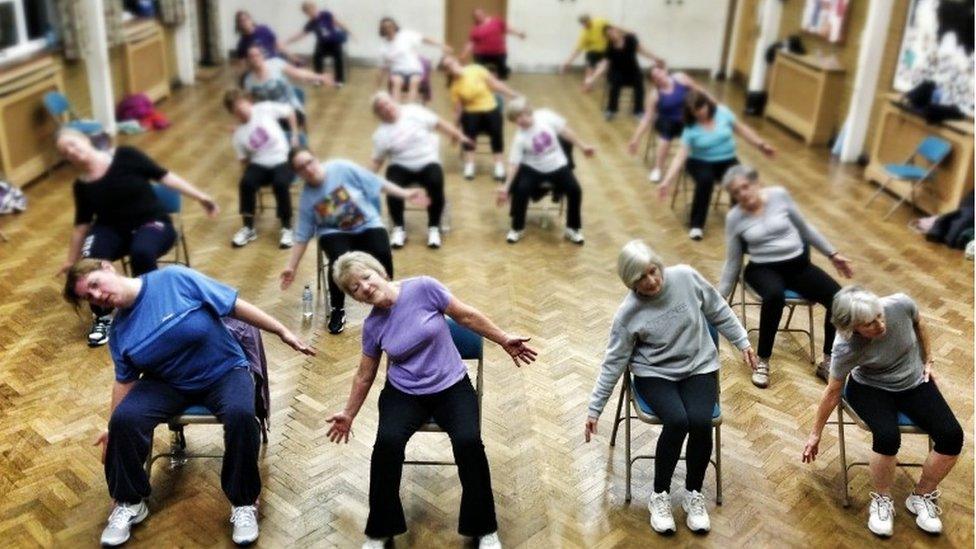
Trying to lose weight can feel like a very lonely experience which often leads to a lack of motivation. So the advice is do not try to do it alone.
Rosemary Conley has been running diet and exercise classes since the 1980s. She says: "There is no doubt that losing weight without support from other people is going to be much more difficult. There isn't a quick fix. It's going to take time and feel hard so you need to surround yourself with positive people who are going to encourage you."
Slimming clubs and exercise classes are a good way to start but if you can't get out there's also help online. Mrs Conley says: "Web forums are a place where you can share your fears and tips with other people and you can also buddy up and just plan to go for walks if you don't want to join a class. There's lots of information out there so it's about re-educating yourself."

Do not 'eat for two' during pregnancy

Dame Sally says she wants to "bust the myth" that women should eat for two when they are pregnant.
A woman's health affects the conditions inside the womb which in turn can have life-long consequences for the health of the child, including the risk of obesity or type 2 diabetes.
Rosie Dodds, senior policy adviser at the National Childbirth Trust (NCT), says women are advised to adopt a healthier lifestyle before getting pregnant.
"You don't want to to be losing weight when you're expecting so its better to improve your diet before. Find out what your body mass index is so you know what you're aiming for before and during pregnancy," she says.
"It's recommended you increase the amount of fruit and vegetables you eat as well as high-fibre foods, but equally it's also not a time to over-indulge."
Pressure to lose weight quickly after the birth can also lead to unrealistic expectations but experts recommend trying to move more. "Getting out improves your mood and getting mutual support from other mums is a great help," says Ms Dodds.
- Published4 March 2015
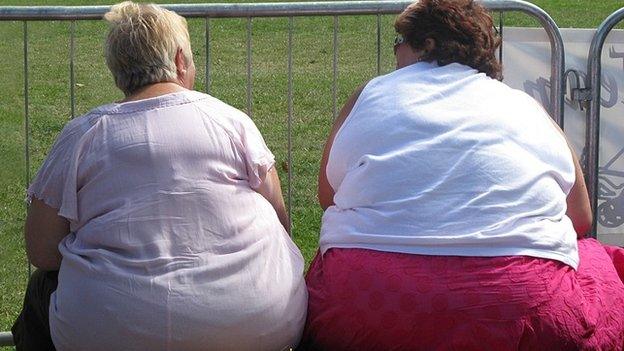
- Published9 January 2013

- Published26 August 2011